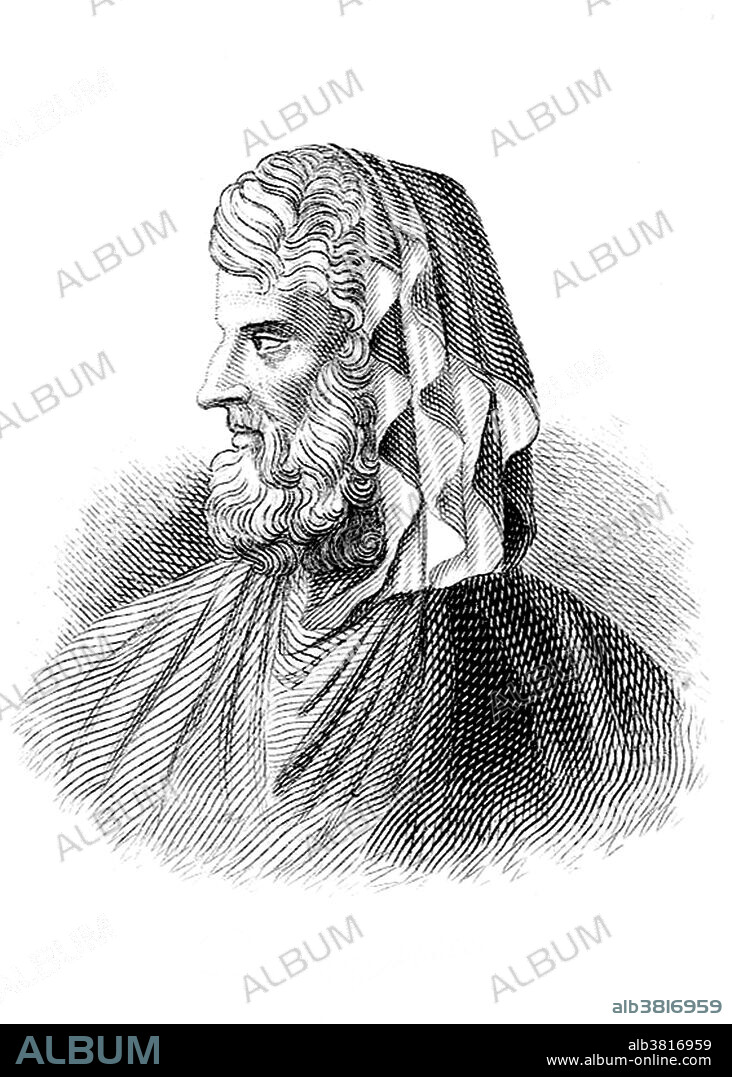alb3816959
Dionysius the Renegade, Ancient Greek Philosopher

|
Añadir a otro lightbox |
|
Añadir a otro lightbox |



¿Ya tienes cuenta? Iniciar sesión
¿No tienes cuenta? Regístrate
Compra esta imagen
|
?
Impresiones, tarjetas y regalos personales o referencias para artistas. Solo para un uso no comercial. No se permite la reventa.
|
$19.99 |
|
?
|
$19.99 |
|
?
|
$49.99 |
|
?
|
$69.99 |
|
?
|
$199.99 |
Añadir al carrito
Para otros usos,
Título:
Dionysius the Renegade, Ancient Greek Philosopher
Descripción:
Ver traducción automática
Dionysius the Renegade (330 - 250), also known as Dionysius of Heraclea, was a Stoic philosopher. In early life he was a disciple of Heraclides, Alexinus, and Menedemus, and afterwards of Zeno, who appears to have induced him to adopt Stoicism. At a later time he was afflicted with terrible eye pain, which caused him to abandon Stoic philosophy, and to join the Cyrenaics, whose doctrine, that hedonism and the absence of pain was the highest good, had more charms for him than the austere ethics of Stoicism. This renunciation of his former philosophical creed drew upon him the nickname of The Renegade. During the time that he was a Stoic, he was praised for his modesty, abstinence, and moderation, but afterwards he was described as a person greatly given to sensual pleasures. He died, in his 80th year, of voluntary starvation. Engraving by J.W. Cook, 1825.
Crédito:
Album / NYPL/Science Source
Autorizaciones:
Modelo: No - Propiedad: No
¿Preguntas relacionadas con los derechos?
¿Preguntas relacionadas con los derechos?
Tamaño imagen:
3109 x 4350 px | 38.7 MB
Tamaño impresión:
26.3 x 36.8 cm | 10.4 x 14.5 in (300 dpi)
Palabras clave:
3RD CENTURY B. C. • ANCIENT GREEK • ANTIGUO • ANTIGÜEDAD • ARTE • BLANCO Y NEGRO • DIBUJO • ESCUELA ESTOICA • ESTOICISMO • ESTOICO • FAMOSO • FIGURA • FILOSOFIA • FILOSOFO • GENTE • GRABADO • GRIEGO ANTIGUO • GRIEGO • HISTORIA • HISTORICO • HOMBRE • HOMBRES • ILUSTRACION • IMPORTANTE • MASCULINO • OBRA DE ARTE • PERSONA • PERSONALIDAD • PERSONALIDADES • RETRATO DE HOMBRE • RETRATO • S. III AC • S. IV AC • SIGLO III A. C. • SIGLO III AC • SIGLO IV A. C. • SIGLO IV AC • SIGLO IV AC. • STOICISM
 Pinterest
Pinterest Twitter
Twitter Facebook
Facebook Copiar enlace
Copiar enlace Email
Email
